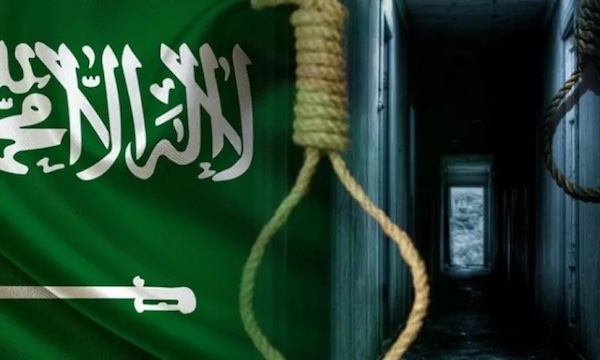The horrifying news that Saudi Arabian border guards have been massacring African migrants is now compounded by the revelation that the Biden administration has been aware of the mass murder for at least a year and yet has said nothing about it.
According to human rights groups, the Saudi security forces have slaughtered “hundreds, perhaps thousands” of unarmed African civilians. The migrants had approached the Saudi border in the hope of finding work or receiving asylum from persecution; the Saudis responded with gunfire, mutilations, and sexual atrocities.
The New York Times reported on August 28 that as early as the autumn of 2022, “American diplomats received grim news that border guards in Saudi Arabia, a close U.S. partner in the Middle East, were using lethal force against African migrants.” Yet throughout this past year, the Biden administration has never criticized the Saudi massacres.
The most any U.S. official has said was, as the Times noted, “an oblique reference” to the issue: the deputy American representative to the United Nations said during a UN briefing last January that the Biden administration is “concerned” by “alleged abuses against migrants on the border with Saudi Arabia.” He called on “all parties” to permit an outside investigation.
That was it. No reference to the killings and no identification of the perpetrators, even though Washington had already received ample information about the mass murder.
The Times pointed out that in late 2022, President Biden publicly criticized Saudi Arabia for cutting oil production because it might “lead to a rise in global oil prices before the midterm elections.” He even threatened there would be “consequences” for oil cuts. But the president said nothing about the Saudi massacres. Apparently, there are no consequences for mass murder.
During the Holocaust, too, the U.S. government received information about mass murder but chose to look away.
Beginning in the autumn of 1941, Washington received increasingly detailed reports about the Nazis’ machine-gun massacres of tens of thousands of European Jews in occupied Russia. One eyewitness account described freshly-covered mass graves “heaving like the sea” from the movement of victims who were not yet dead.
A report smuggled from Poland in June 1942 disclosed that the Germans had “embarked on the physical extermination of the Jewish population on Polish soil” and had already murdered at least 700,000 Polish Jews. The World Jewish Congress publicized the news. The Roosevelt administration had no comment.
In August, a telegram to Washington from the World Jewish Congress representative in Geneva, Gerhart Riegner, reported that the Germans intended “to exterminate all Jews from German and German-controlled areas in Europe after they have been concentrated in the east (presumably Poland).”
The State Department refused Riegner’s request to forward the telegram to American Jewish leaders because of—as one U.S. official put it—“the fantastic nature of the allegation and the impossibility of our being of any assistance.” In fact, there were many ways the U.S. could have been of assistance, but it would have meant taking steps that President Franklin D. Roosevelt was unwilling to consider, such as admitting more refugees to the United States or urging the British to open the doors of Palestine.
Finally, three months later, the accumulation of evidence compelled Undersecretary of State Sumner Welles to acknowledge that “there is no exaggeration. These documents [from Riegner and others] are evidently correct.” But when the British Foreign Office proposed that the Allies issue a joint statement about the killings, Roosevelt administration officials resisted, fearing that—as one senior official put it—“the various Governments of the United Nations [as the Allies were informally known] would expose themselves to increased pressure from all sides to do something more specific in order to aid these people.”
i
The U.S. eventually went along with issuing the statement, but only after watering down some of the language. For example, the proposed phrase “reports from Europe which leave no doubt” (that mass murder was underway) was whittled down to just “numerous reports from Europe.”
The final version, released on December 17, 1942, was signed by the United States, Great Britain, the Soviet Union, and the governments in exile of eight German-occupied countries. It condemned the Nazis’ “bestial policy of cold-blooded extermination.” However, it did not propose any steps to rescue Jews from Hitler. The idea of offering asylum for Jewish refugees was left out of the statement because, as one British official explained, it would mean making an offer “which would dog our footsteps forever.”
How much have attitudes changed since the 1940s? Eighty years later, “rights violations, no matter how grave, rarely take priority when diplomats do business with their counterparts from rich partners like Saudi Arabia,” the Times noted.
But “rich” mass murderers should not be given a pass. The Biden administration has promised to take international human rights seriously. It has a moral obligation to speak out against mass murder, even when it may be politically or financially inconvenient to do so.
]
Dr. Medoff is the founding director of The David S. Wyman Institute for Holocaust Studies and the author of more than 20 books about Jewish history and the Holocaust. His most recent book, America and the Holocaust: A Documentary History, was published by the Jewish Publication Society of America / University of Nebraska Press. And available on Amazon(as are his other books).






